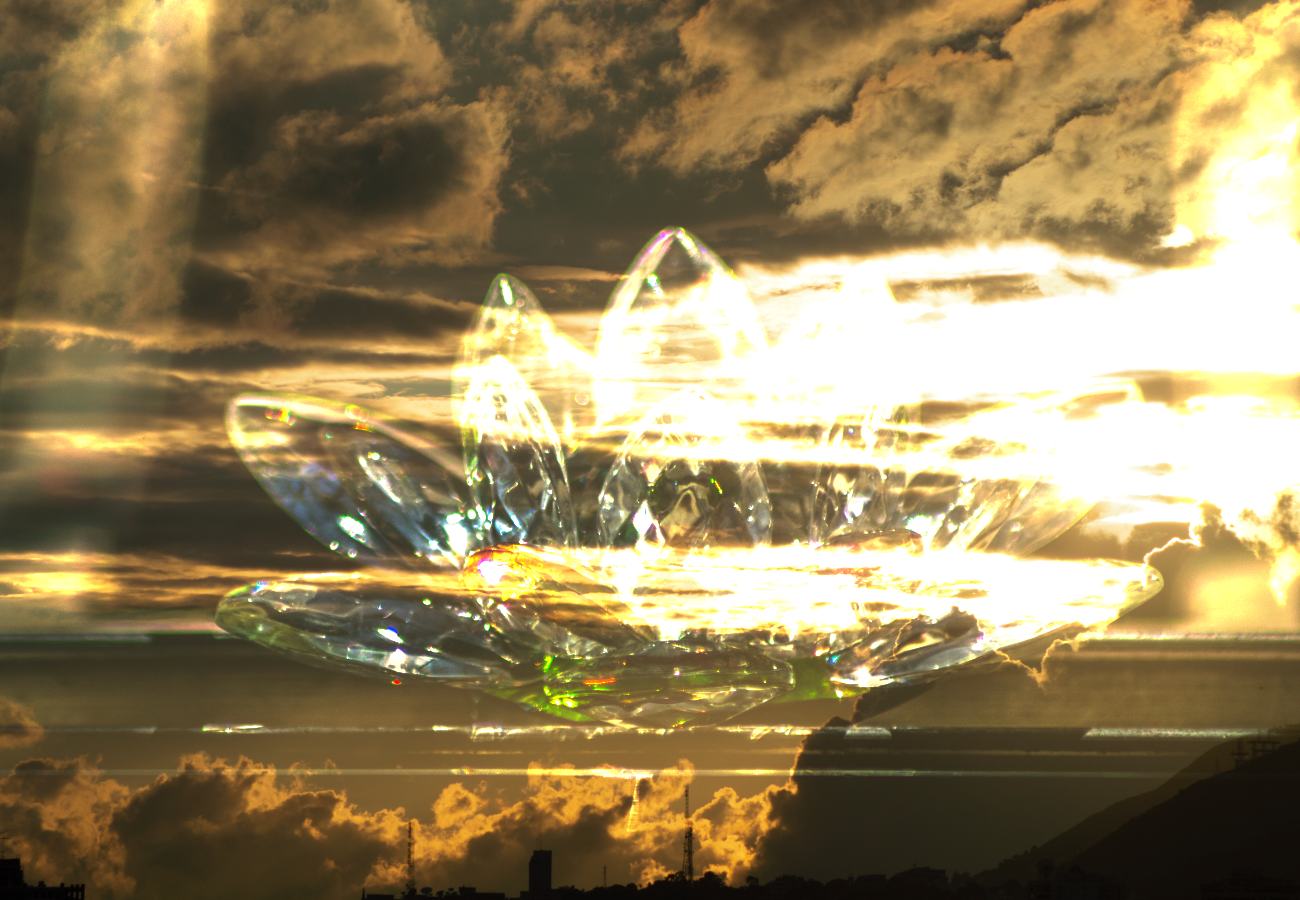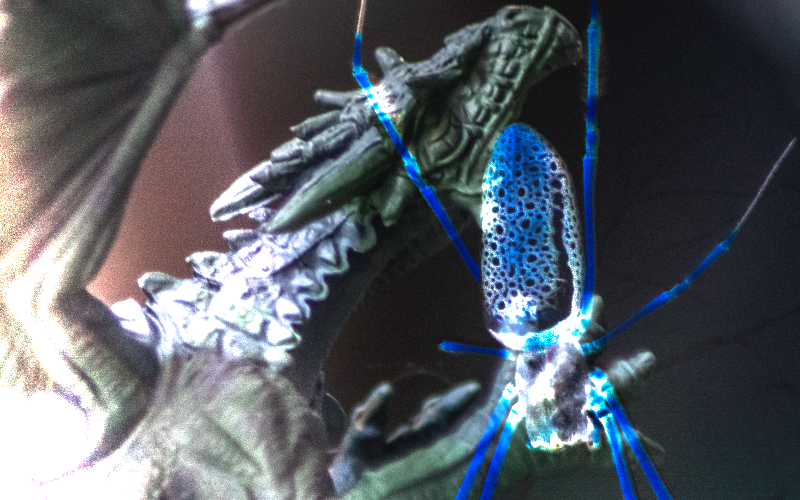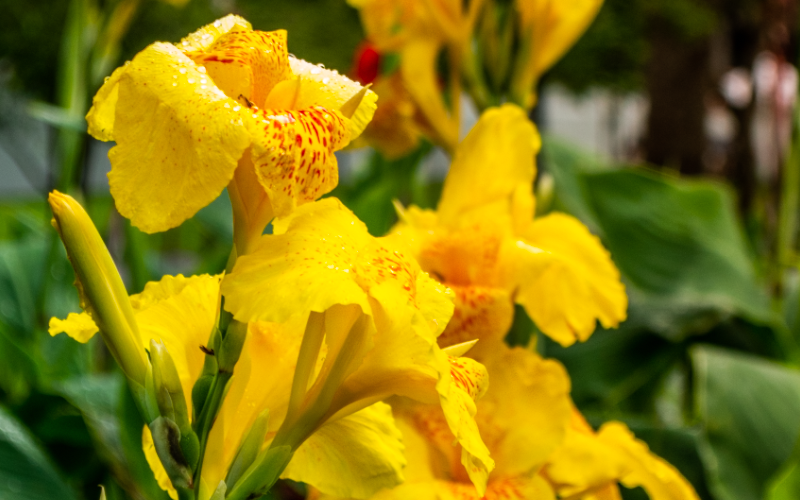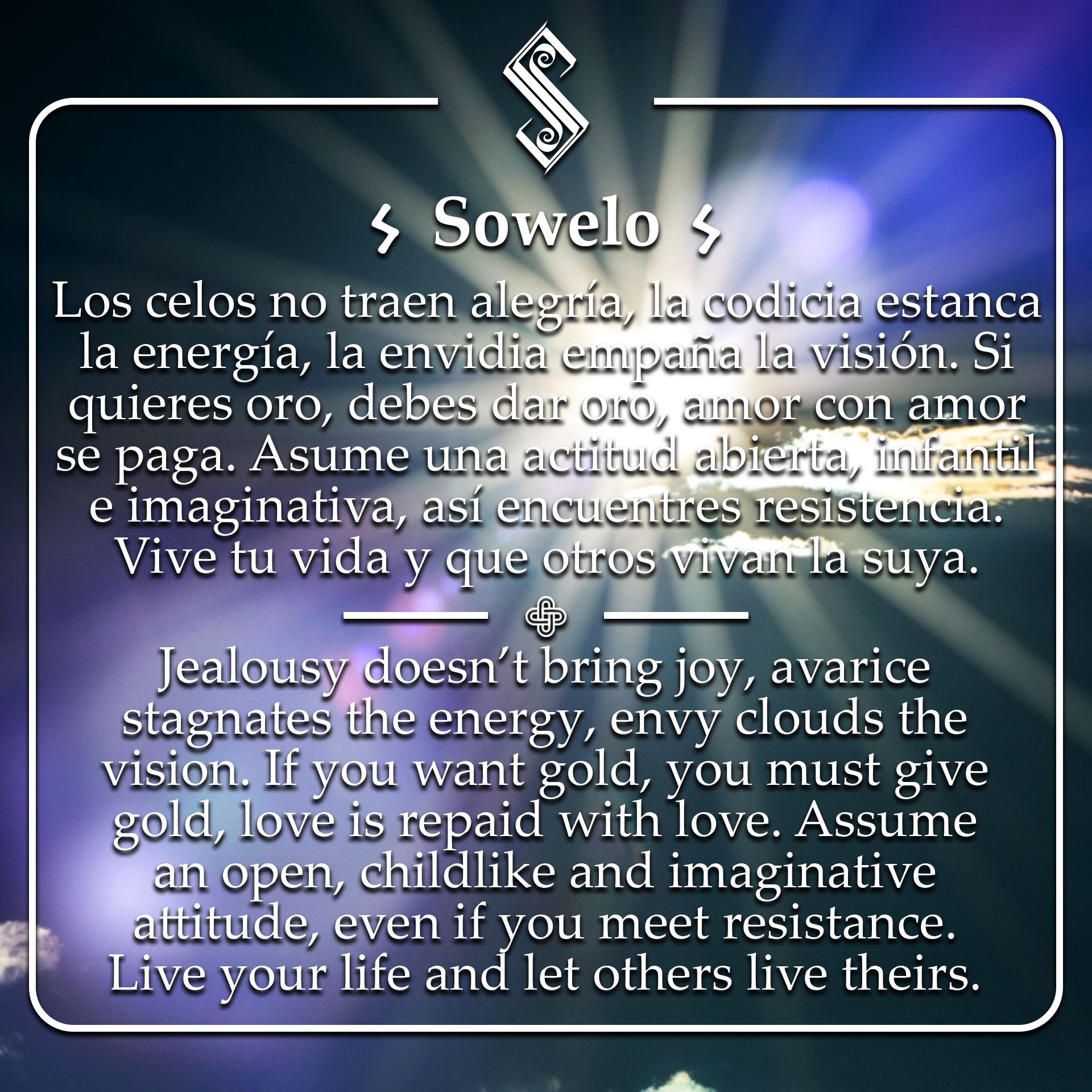
---
En "La Historia Interminable" de Michael Ende, una de las novelas más importantes en mi desarrollo como persona y como narrador, existe un personaje llamado Ygrámul el Múltiple, que nunca apareció en las adaptaciones al cine por la complejidad de su diseño, ya que es una criatura compuesta de innumerables insectos que cambian de posición constantemente, creando diversos cuerpos monstruosos. Atreyu, el protagonista de la primera parte de la historia, lo consigue en su antro tratando de matar a Fújur (Falkor en las películas), el dragón blanco de la suerte. Atreyu, invocando el poder de ÁURYN, el símbolo de la Emperatriz Infantil, ordena a Ygrámul que suelte a Fújur, pero éste se rehúsa, replicando que el chico no tiene ningún derecho a exigirle que libere a su víctima, pues la Emperatriz Infantil permite que todos los habiantes de su Reino sean tal cual son, no les ordena ir en contra de su naturaleza.
Este diálogo es de suma profundidad y, extrapolado a nuestro mundo, se puede vislumbrar una importante lección que la humanidad aún está lejos de integrar: cada cosa tiene su espacio, cada persona su lugar, cada acción su momento, cada quien es quien es y no puede ser otra persona por mucho que lo intente, ni se le puede exigir que lo sea.
In "The Neverending Story" by Michael Ende, one of the most important novels for my development as a person and as a narrator, there's a character called Ygramul the Many, who never appeared in the movie adaptations due to the complexity of his design, since it's a creature made out of innumerable insects that constantly change position, creating various monstrous bodies. Atreyu, the protagonist of the first part of the story, finds him in his lair while he tries to kill Fujur (Falkor in the films), the white luck dragon. Atreyu, invoking the power of AURYN, the symbol of the Childlike Empress, orders Ygramul to release Fujur, but he refuses, replying to the boy that he had no right to demand that he release his victim, because the Childlike Empress allows all inhabitants of her Realm to be just as they are, she doesn't order them to go against their nature.
This dialogue is tremendously profound and, if we extrapolate it to our world, we can get a glimpse of an important lesson that humanity is still very far from integrating: everything has its space, each person has their place, every action has its time, everyone is who they are and they can't be anyone else no matter how hard they try, nor can they be demanded to be otherwise.
---

---
Según mi experiencia, vivir en la vulnerabilidad constante, con la actitud de asombro y apertura a lo nuevo, con la voluntad de imaginar una variedad de escenarios, es infinitamente más sencillo que usar máscaras y pretender ser algo que no soy. El costo de mantener la ilusión es altísimo y con frecuencia insuficiente, pues siempre se va a notar que uno no está siendo auténtico. Incluso gente muy hábil en ocultar su verdadera forma y propósitos no puede sostener el engaño todo el tiempo o de manera uniforme. Entiendo de dónde puede surgir la necesidad de asumir otras identidades, y es posible que, en ciertos contextos, sea considerada indispensable para poder sobrevivir, pero yo he concluido que uno puede estar bien protegido en la genuinidad, pues los demás igual se harán ideas de lo que uno es, opacando su propia visibilidad.
En la historia de arriba, el exponente de la autenticidad es un terrible ser oscuro. A la sociedad no le gustan esos seres, pero son parte de ella de todos modos, tal cual como nuestros demonios internos son parte inextricable de nosotros. Tengo la convicción de que el crimen, la tiranía, el abuso y todas las formas de violencia que los seres humanos usan entre sí, se sustentan en la tendencia generalizada a invisibilizar lo desagradable y lo cuestionable, a reducirlo a fenómenos inconexos sin tomar en cuenta el proceso entero, lo cual siempre nos deja sin herramientas o preparación para resolver los problemas de base, como el abandono, los conflictos domésticos o la negligencia del Estado.
According to my experience, living in constant vulnerability, with the attitude of awe and openness to new things, with the will to imagine a variety of scenarios, is infinitely simpler than wearing masks and pretending to be something that I'm not. The cost of maintaining the illusion is colossal and often insufficient, because our lack of authenticity will always out. Even people who are very skillful in hiding their true form and purposes can't keep up the deceit all the time or in a uniform manner. I understand where the need to assume other identities may emerge, and it's possible that, in certain contexts, this ability could be considered indispensable for survival, but I've concluded that we can be well protected in genuineness, because other people will still create their own ideas of what we are, obscuring their own visibility.
In the story above, the representative of authenticity is a terrible dark being. Society doesn't like those beings, but they're part of it all the same, just like our inner demons are an inextricable part of us. I have the conviction that crime, tyranny, abuse and all the other forms of violence that human beings use with one another, are supported on the general tendency to conceal unpleasant and questionable things, to reduce them to disjointed phenomena without taking the whole process into account, which always leaves us without the tools or the preparation to solve the basic problems, such as abandonment, domestic conflicts and the negligence of the State.
---

---
La vulnerabilidad es difícil para todos nostros, porque nos obliga a vernos honestamente, con nuestras cualidades y defectos. Una vez hemos visto nuestro potencial para destruir, dañar, preservar y crear, ya no podemos engañarnos haciéndonos pasar por otras personas o cubriéndonos con capas de historias para ocultar fallas de carácter o exaltar virtudes ficticias. Pero les diré algo, yo prefiero mil veces explorar mis capacidades reales que imitar las de otros o usar excusas. En meditaciones he tomado el punto de vista de la víctima, el perpetrador y el testico en múltiples escenarios, con la consciencia de que eso está ocurriendo en alguna dimensión del Universo, y esa auto-sinceridad me da fuerza, pues encuentro cada vez mayor gusto en ser yo. Si puedo aceptar lo desagradable de mí, no tengo que temer exponerme.
La sabiduría para progresar como civilización se encuentra en los espacios de penumbra o noche en los que no nos gusta mirar. Cuando el juicio parece más cómodo, allí es cuando debemos hacer más preguntas, pues ninguno de nosotros es solo una cosa, todos somos múltiples, como Ygrámul, compuestos por incontables moléculas de emoción, pensamiento, materia y energía.
Acá está la lectura de hoy.
Vulnerability is difficult for all of us, because it forces us to see ourselves honestly, with our qualities and flaws. Once we've seen our potential to destroy, harm, to preserve and create, we can no longer deceive ourselves, playing the part of other people or covering ourselves with layers of stories to hide failings of character or exalt fictional virtues. But I'll tell you something, I prefer exploring my real capacities a thousand times over imitating those of others or using excuses. In meditations, I've taken the point of view of the victim, the perpetrator and the witness in multiple scenarios, with the awareness that they're taking place in some dimension of the Universe, and that self-sincerity gives me strength, because I find increasingly more pleasure in being me. If I can accept the unpleasant parts of me, I don't have to fear exposure.
The wisdom to advance as a civilization resides in the half-lit places and the night where we don't like to look. When judgment seems more comfortable, that's when we must ask more questions, because none of us is one single thing, we're all the many, like Ygrámul, made up of uncounted molecules of emotion, thought, matter and energy.
Here's the reading for today.
---
